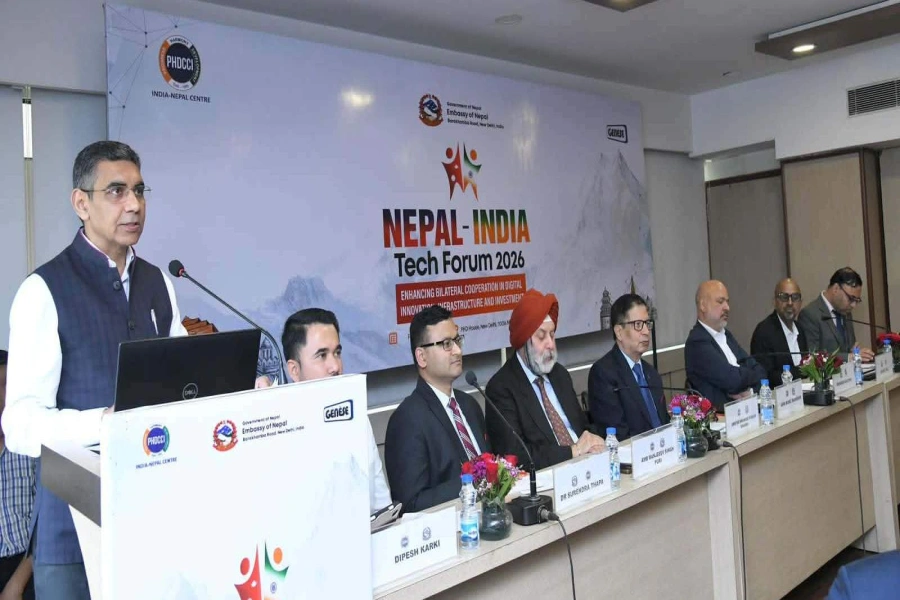KATHMANDU, Jan 3: Beekeeping farmers have demanded that the government impose a tax on imported honey. They stated that the influx of honey through land routes from India and China has made it difficult to sell Nepali honey and requested that the government impose a tax on imported honey.
The Prime Minister's Agricultural Modernization Project Implementation Unit in Chitwan organized a panel discussion in Sauraha during the first Chitwan Festival, bringing together farmers, beekeepers, and relevant stakeholders. During the event, farmers urged the creation of a law to prevent honey imports, stating that honey from abroad is not taxed.
Subhash Chandra Ghimire, the president of the Federation of Nepal Beekeepers, explained that foreign honey is preventing domestic honey from finding a market. "Honey is being imported from abroad at prices as low as Rs 200 per kilogram, which doesn't even cover our costs," he said. "We cannot completely ban imports, but if the government imposes a tax on imported honey, domestic products could find a market."
Fresh & local

He stated that there is currently no tax on imported honey. He mentioned that the cost of Nepali honey is Rs 400 per kilogram. He also explained that Nepali honey cannot compete with Indian honey, as the Indian government provides subsidies to farmers. Additionally, he requested the government to establish bee roads for beekeeping.
Beekeeping farmer Shiva Paudel urged the government to focus on commercialization. "Every farmer's home has honey stored," he said. "The government should now focus on reducing production costs and advancing commercialization."
He stated that although bees significantly contribute to the development of community forests, the government charges farmers a royalty of up to Rs 350 per hive. He also claimed that if the government manages the market, farmers will be able to produce enough honey to meet domestic consumption within the next five years.
Bhoj Raj Sapkota, the head of the Plant Quarantine and Pesticide Management Center, stated that the government must create and implement policies to stop the import of honey. He explained, "Since Nepal is a member of the WTO, stopping imports is difficult. However, the government can reduce honey imports by imposing taxes."
He stated that beekeeping plays an important role in ensuring the food supply chain. "Bees pollinate agricultural crops and plants, which increases food crop production," he said. "Bees also improve nutritional security."
He stated that bees significantly contribute to sustainable agriculture and biodiversity conservation. He also urged that people should understand beekeeping in connection with honey production and the agricultural system.
He stated that bees contribute 2.5 percent to total agricultural production. He mentioned that around 700 metric tons of honey were imported by Nepal last year, with 98 percent of the imported honey coming from India. Dabur Nepal, one of the biggest importers, uses 88 percent of honey from India.










_20191222200001.jpg)


























